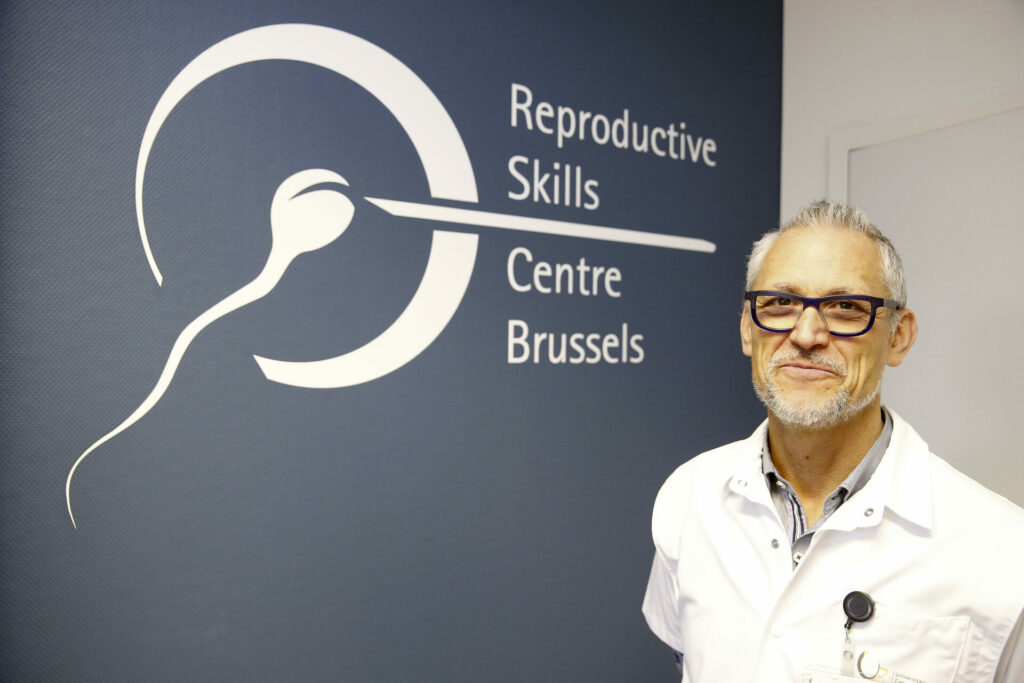The price of donor sperm in Belgium has risen "exuberantly" in a short time, the country's biggest fertility centres said. Costs have gone up so much that couples and single women are looking for other ways to get pregnant, and are even turning to social media.
At the Ghent University Hospital (UZ Gent), the price of one 'tube' of donor sperm currently stands at €299, Professor Dominic Stoop, head of reproductive medicine at the fertility centre at Ghent University Hospital (UZ Gent), told Het Laatste Nieuws.
"A year and a half ago it was €175 – the cost price went up by 70%," he said, explaining that such a tube contains a frozen quantity of sperm cells that is then inserted into the woman. "Some tubes also cost more: faster swimmers are more expensive swimmers. Still, we agreed that each patient pays the same, regardless of the speed of the sperm."
At the Brussels University Hospital (UZ Brussel), the price of a tube rose from €350 to €500. "That includes administration and transport costs," said Herman Tournaye, head of the hospital's Centre for Reproductive Medicine.
Strictly regulated
The UZ Leuven did not disclose the amount but also confirmed the extra cost. "We are one of the few hospitals running a donor bank in-house. That allows us to keep prices down, although we too see increased material and staff costs," andrologist Leen Antonio said. "It follows inflation."
She explained that at the Leuven University Hospital, the staff collect, screen and evaluate all donors themselves. "It is a labour-intensive and time-consuming project. A donor does not just hand over his sample and then it is done. On average, they have to visit 12 to 15 times."
Sperm and urine tests need to be taken, as well as genetic tests, medical checkups by doctors and interviews with psychologists, Antonio said.
"It is no longer like it was 20 years ago: sperm donation is very strictly regulated today and must be medically traceable," said Tournaye. "If a donor child is born with a genetic abnormality, it must be checked who else became pregnant from this donor. Per tube, all ins and outs must be reported to the government. It is a full-time job just to have the administrative side of donations in order."
Related News
- Lift mandatory anonymity of sperm donors, says ethics council
- Record-breaking amounts of women opt for fertility treatment in Flanders
- 6 in 10 Belgian sperm donor children have biological Danish fathers
The hospitals in Ghent and Brussels, however, get their sperm donations from Danish and Spanish donor banks, meaning they have little say in the price. "In Denmark, carts used to drive around the campuses of universities to collect sperm from students. Covid-19 made that impossible, resulting in a shortage that influenced the price," said Stoop.
While Tournaye of the UZ Brussel does not immediately see one specific reason for the sharp price increase, he said that sperm banks do respond to supply and demand. "Now, there are more single women and lesbian couples who need donor sperm than before. Foreign sperm banks are often semi-commercial companies."
In Belgium, patients get part of the costs of fertility treatment back through their health insurance, specifically the lab phase and part of the medication. The use of donor sperm, however, is not reimbursed.
Therefore, doctors often hear that couples or women are refraining from fertility treatment or they urge them to immediately switch to IVF (in-vitro fertilisation, in which a woman's egg cell is removed from the ovaries and fertilised with sperm outside the body).
Looking on social media
"IVF has a higher success rate than artificial insemination," Stoop said. "For both, you need one sperm tube. But with insemination, a woman often has to return five to six times before they are actually pregnant. We cannot let IVF control our policy; these are not infertile women, they just need donor sperm."
According to Tournaye, one tube in an IVF process has the same success rate as three insemination sessions. "It has an impact on people. Some just flat-out say that it is too expensive, and ask whether it is possible to find a donor through social media."
He added that this trend is worrying, as some men do not ask money for their semen, but for sex. "I know that donor sperm is very expensive, but I hope people understand why. We guarantee patient safety and medical correctness. With an internet donor, you do not know what to expect."

